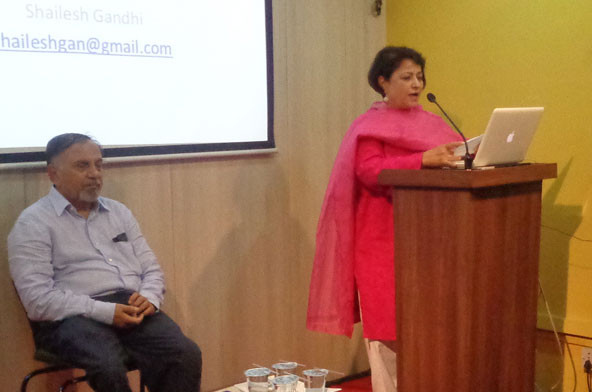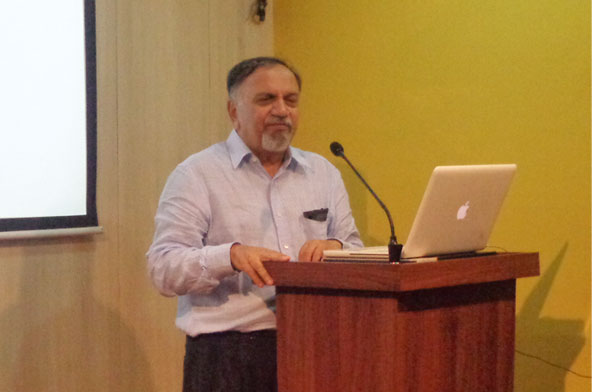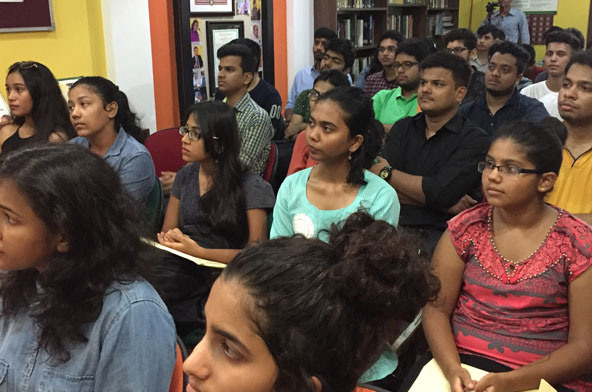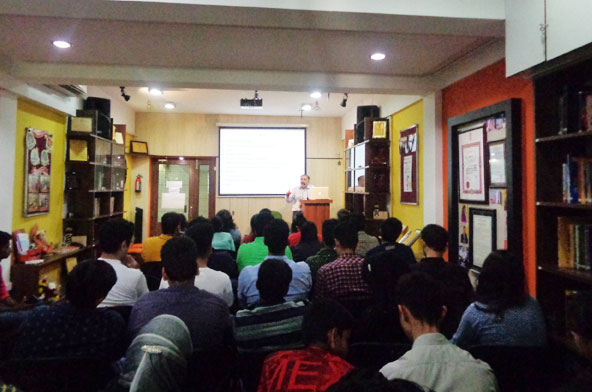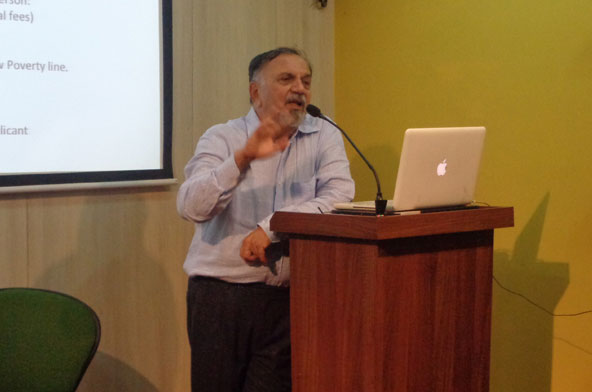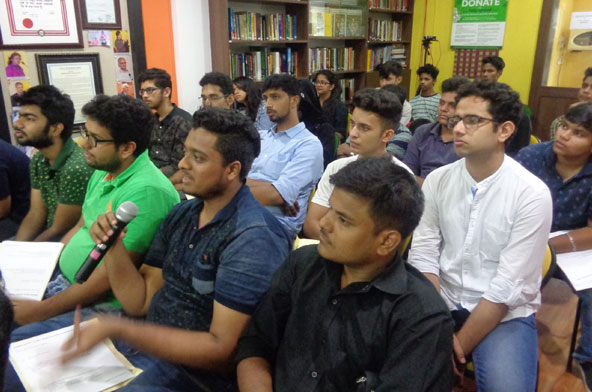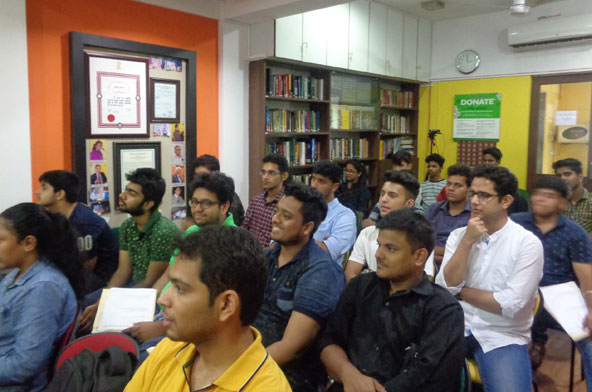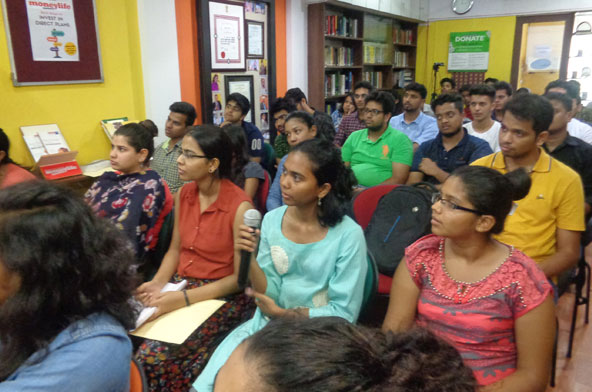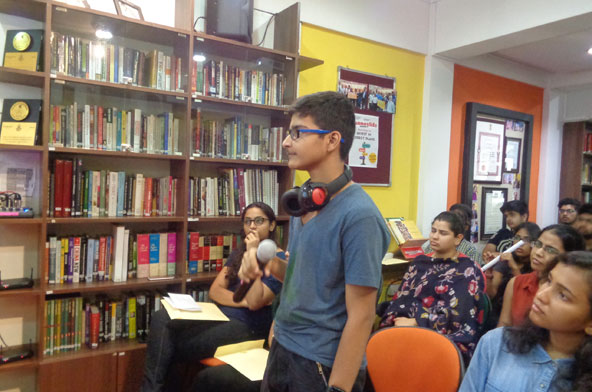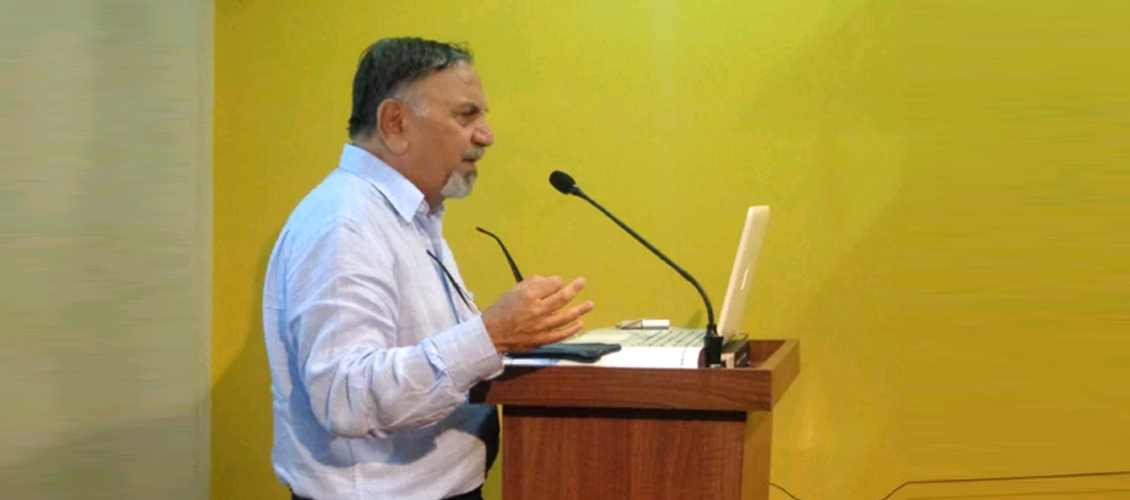
Shailesh Gandhi, former Central Information Commissioner under RTI, explained to a group of 40 youngsters that it is they who own information held by public authorities. Speaking at a full day seminar organised by Moneylife Foundation, Mr Gandhi explained the concept of Lokshahi, which according to him, meant ‘Logo Ki Shenshahi’ (Rule of the People), wherein each individual had the right by birth to feel as the ‘badshah’ and ‘begum’ of the country.
Mr Gandhi, while explaining bureaucracy, pointed out the causes of inefficiency in the government. He said, “They (the government) are capable of making citizens feel angry and humiliated even if they approach the civic authorities to request a change of address on their ration card.”
Citing an example, he said when Mahatma Gandhi was thrown off a train carriage in South Africa for being of brown colour, a complaint telegram sent by him was received with attention and within the next 12-14 hours he was escorted by an official in the next train. Such was the power exercised by an individual in those early years, the torch bearer of the RTI movement said.
Explaining the Freedom of Speech in Clause 19 (1) (a) in the constitution, the RTI Activist gave the example of Aruna Roy, who first pioneered the concept of RTI in India. Ms Roy, an IAS officer, spent her retired life in a small village in Rajasthan educating the masses and led a protest in front of the government office as they refused to give the village information about the usage of funds allocated for the people’s welfare. Her point was that if it was her money, she was entitled to look at how it was being spent.
Tracing the roots of the RTI to Sweden when Anders Chydenius, in 1776, fought for its introduction and giving credit to Anna Hazare, for being a key element for the enforcement of the RTI Act in Maharashtra in 2005, Mr Gandhi explained the basic features of the Act. “One should know the difference between interrogation and acquiring information” he added.
Explaining the salient features of the Act, he cited the example of a certain Tukaram, who refused to bribe corrupt government officials for procuring his ration card. After two months, he filed an RTI application wanting to know the status of his ration card and the people who received the ration card in the course of two months. The next day, he received a warm welcome in the government office along and his ration card. “Such is the power of the RTI”, Mr Gandhi said.
Believing in the fact that “One person spends 4-5 hours in a month cribbing about something”, he urged the youth to take the initiative and file an RTI application with the state or the central government to bring a change in governance or exposing the crafty policies of corrupt officials.
The session ended with a question and answer round in which the winner was awarded a book on the RTI Act written by Mr Gandhi.


